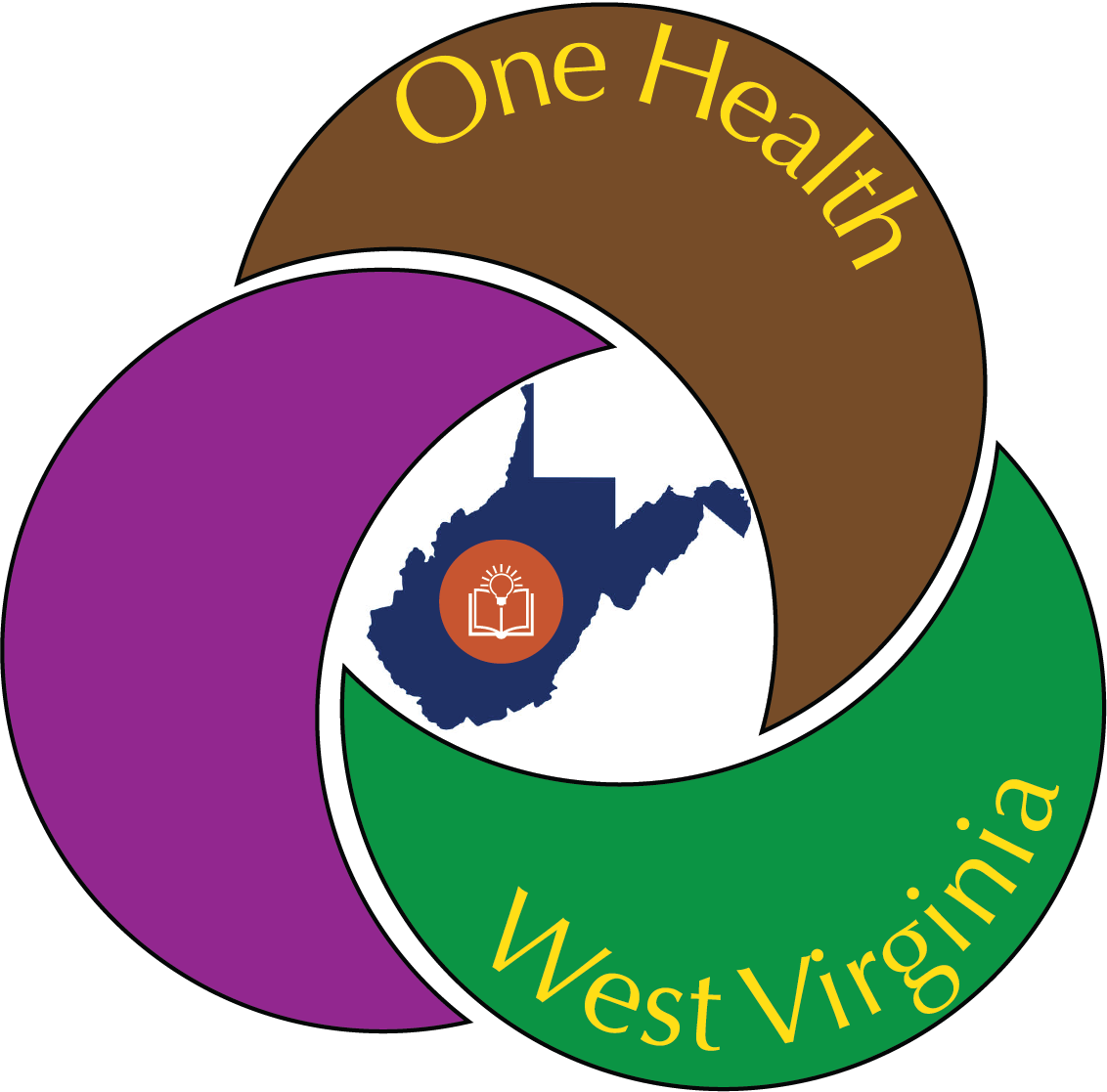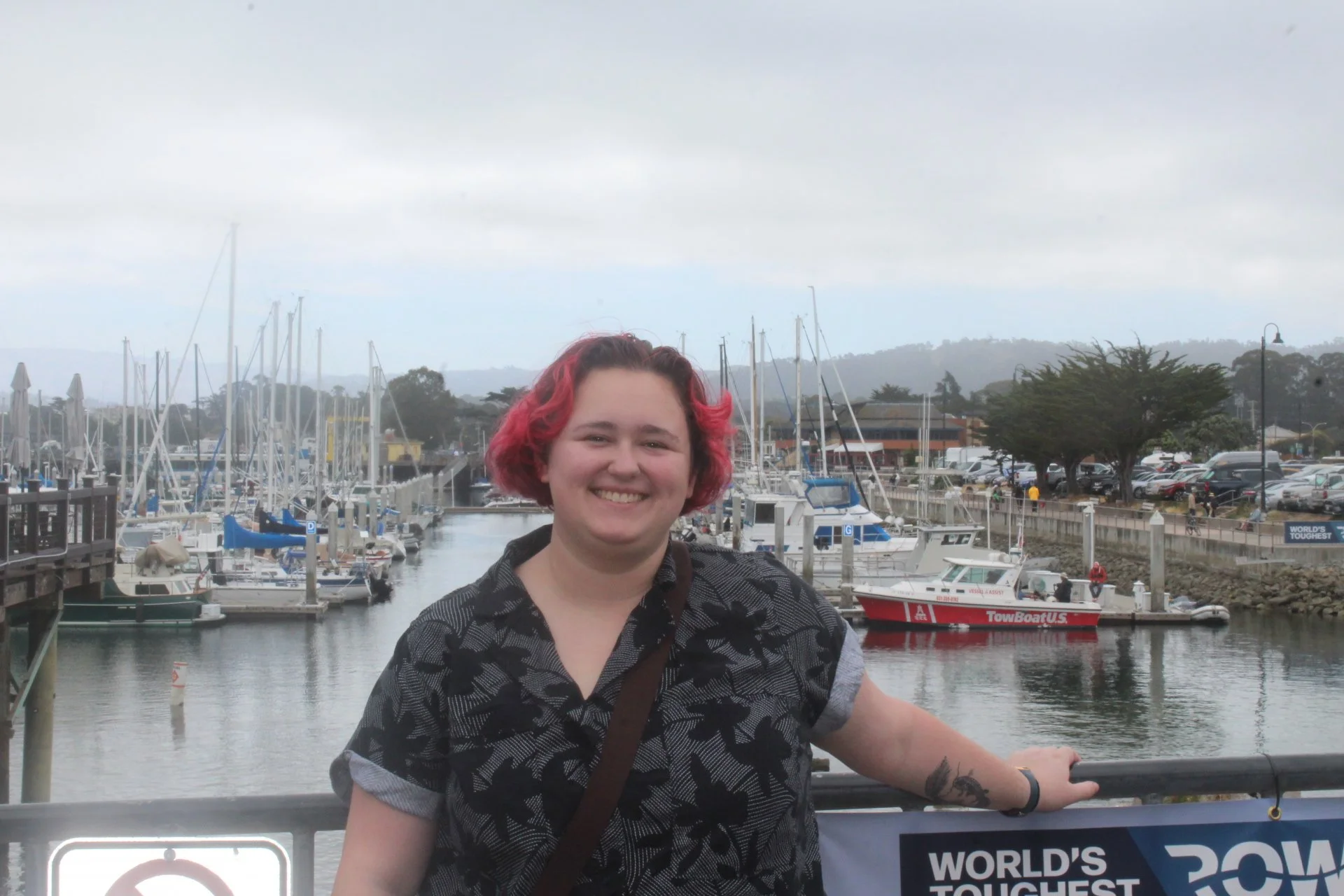Mentees ‘25-’26
-
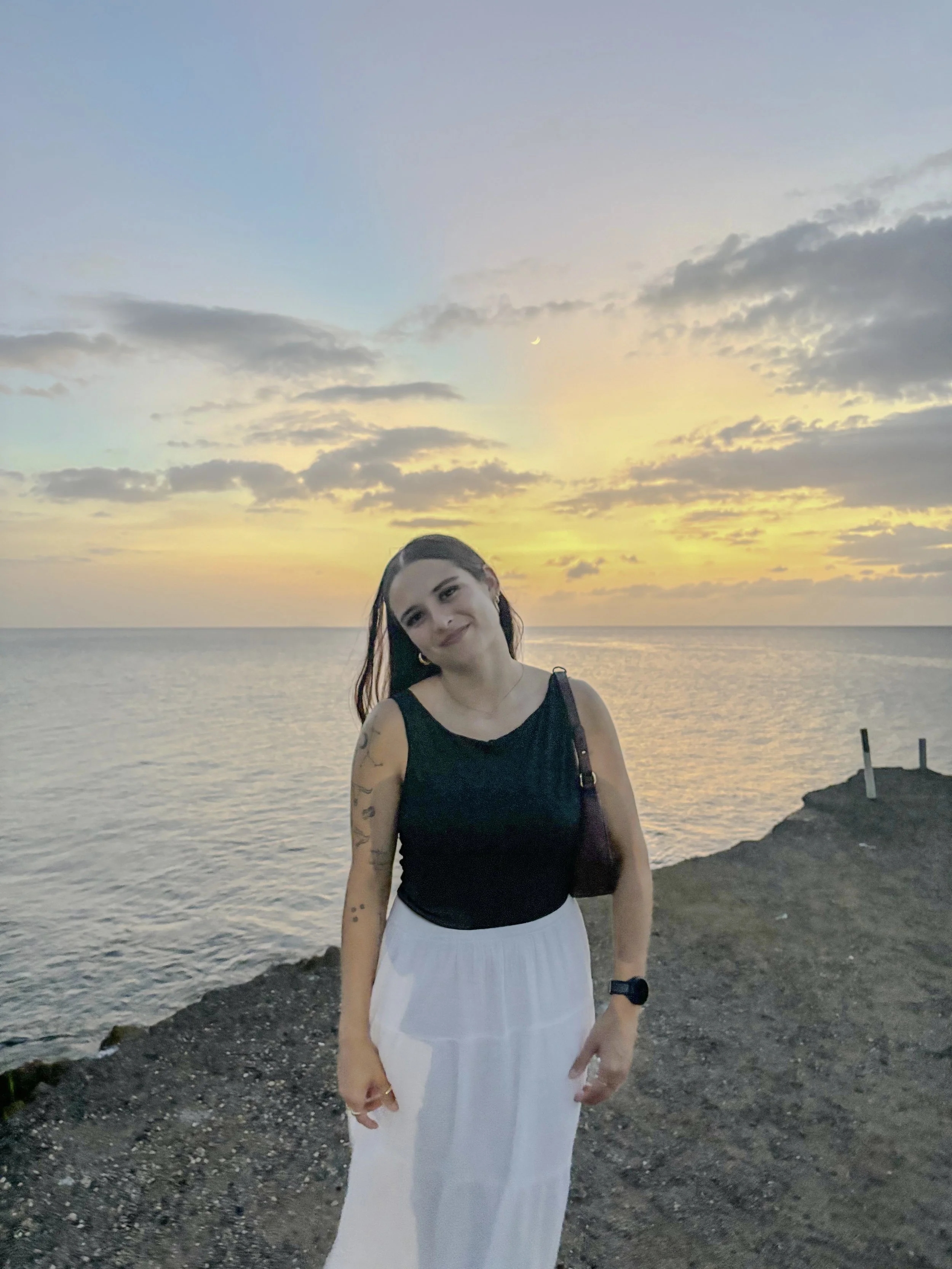
Abigail
Abigail Shugrue is a graduate of UT Austin with a Bachelor of Science in Biochemistry and a minor in Health Communication. She will be working with David Neff to explore the effects of wastewater biofilm on viral genetic material, with applications in disease surveillance. While maintaining bioreactors with local wastewater, Abigail will develop skills in PCR, microscopy, genome sequencing, and more. After this program, she plans to pursue a PhD and eventually work in academia or government to make science more accessible and help the public understand its relevance and impact on everyday life. In her free time, she enjoys exercising, volunteering as a dog walker, exploring new coffee shops, and cheering on Texas football!
-
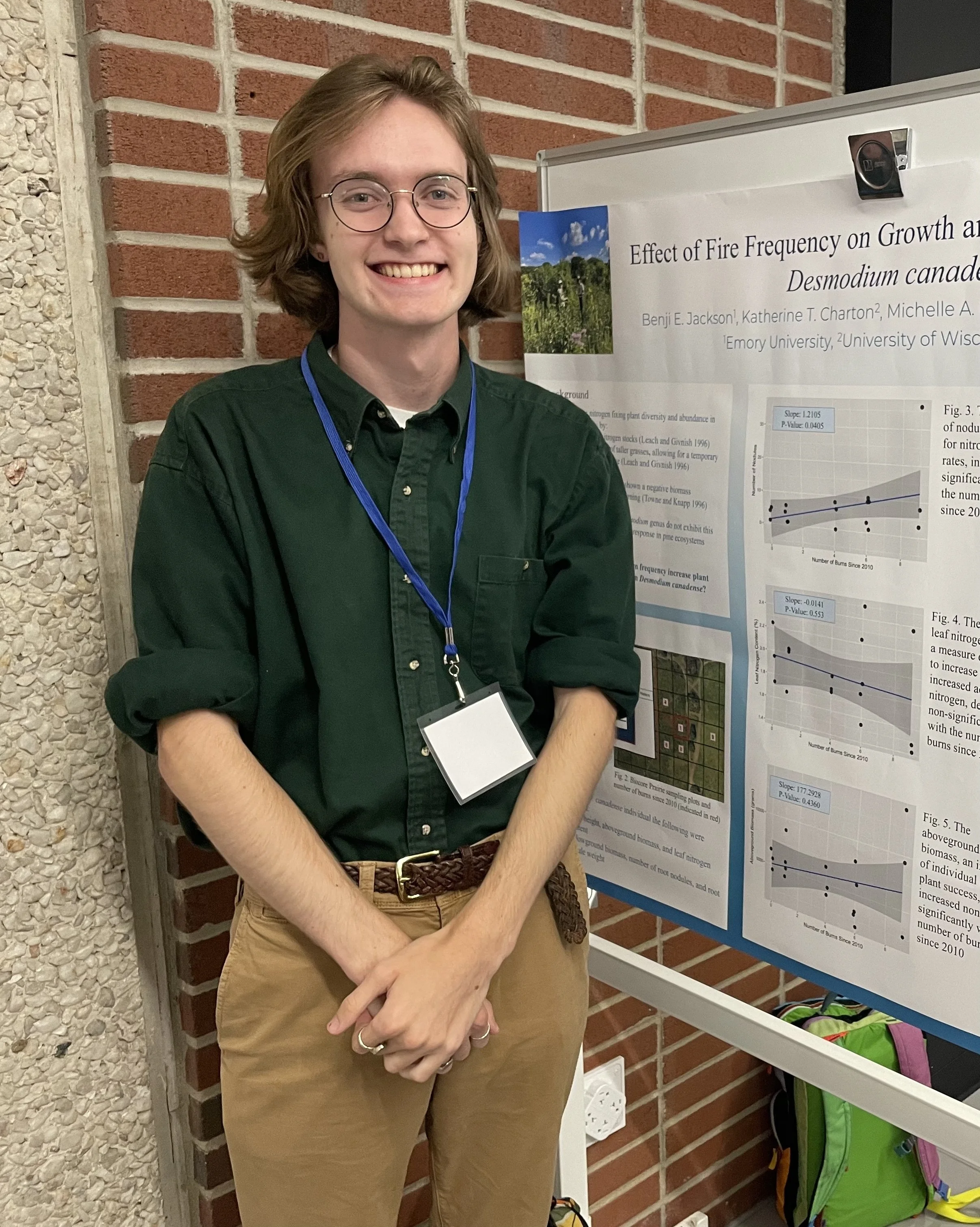
Benji
Benji is from Lilburn, GA and graduated in 2025 with their bachelors in science in Environmental Science from Emory University. Their research interests include freshwater ecology, entomology, and environmental health. For their project they are working with Dr. Brent Murry to survey and analyze biological systems and their relationship to microplastic pollution in freshwater springs across WV as well as surrounding areas. Through the One Health program Benji hopes to build upon skills and research experience to prepare for graduate school. In their free time, Benji enjoys knitting, cooking, reading, and wading in streams.
-
Cloey
Cloey is from Pittsfield, MA and received a dual Bachelor of Science degree in Environmental Science and Aquaculture from the University of New England in 2025. Their research interests include environmental health, biogeography, ecology, and conservation. Cloey loves to explore, and is excited to see everything West Virginia has to offer! After this program, Cloey hopes to continue their education and pursue a career in academia.
-

Emma
Emma, a West Virginia native, developed a deep appreciation for science and the natural world from a young age due to spending most of her time outside. She earned her Bachelor of Science in biology in May 2024. She began with a broad interest in biology, but over time shifted her focus to aquatic sciences.
She is currently working with Dr. Vesper to amass detailed data on understudied freshwater springs to assess their health, vulnerability, and threats using a variety of field and laboratory techniques. Emma aims to contribute data to researchers and the public to further our understanding of freshwater springs and communicate their importance with the world.
Ultimately, Emma hopes to use the skills she’s gained in the OneHealth program to pursue a graduate degree and later a career in research or natural resource management. In her free time, she enjoys hiking, snorkeling, and bug catching.
-

Jinx
Jinx Ralston completed their bachelor's degree in Animal Behavior, Ecology, and Conservation at Canisius University in 2025, where they worked in a biochemistry laboratory focusing on sex differences and shoaling behaviors of zebra fish. While Jinx has always loved and been fascinated by animals, throughout their childhood, human behavior remained something that they frequently questioned and could not seem to understand. This was one of the primary drivers regarding Jinx’s current intention of pursuing a career researching neurological and endocrine mechanisms and how they impact social behaviors in animals. In Dr. Spitzer’s lab, Jinx will largely be working with rat cell cultures and nematodes, focusing on the effects of the accumulation of silver nanoparticles (AgNPs) on neurological cellular physiology. Following the end of this program, Jinx intends to pursue a graduate degree in the field of neuroscience. In their down time, Jinx enjoys reading, baking, listening to music, writing, and working with animals.
-

Mikayla
Mikayla is from Harrisburg, PA and is an Elizabethtown College graduate with a bachelor’s degree in Environmental Science and Public Health and a minor in Religious Studies. She is working with Dr. Amir Hass at West Virginia State University to study water quality of streams in reclaimed mine lands in Appalachia. Surface coal mining via mountaintop removal (MTR) has left detrimental impacts on the Appalachian landscape, and the presence of valley fills implemented during MTR reclamation has been a continuous source of high levels of total dissolved solids (TDS) in surrounding aquatic systems. Mikayla’s research focuses on measuring the specific conductance of streams flowing through MTR valley fills and exploring the effects of ponds on downstream TDS levels in these impaired systems. She is confident that this program will provide her with valuable experiences and insight to guide her career path. In her free time, Mikayla enjoys reading, swimming, hiking, and playing the saxophone.
-

Nate
Nate is from Catonsville, MD and completed his bachelor’s degree in environmental soil and water science with a minor in geology at West Virginia University. His experience working with the United States Forest Service on the Fernow Experimental Forest helped solidify his passion for the environment, specifically his research interests in hydrology, agronomy, and public health. Nate works with Dr. Caroline Arantes and is researching changes to hydrology, water quality, and other community impacts potentially associated with hydraulic fracturing wells. He hopes to include sampling to investigate microplastics and other less-studied contaminants that are associated with fracking wells. Nate Plans to attend graduate school after the One Health program to eventually pursue a career that helps improve the relationship between the environment and public health. In his free time, Nate enjoys mountain biking, being outdoors, and watching the Washington Capitals.
-

Sara
As of August 1, 2025, Sara Feliú is a post-baccalaureate member of Dr. Derrick R.J. Kolling's research group, in Marshall University, Huntington, West Virginia. Her priority in the lab will be to look at how per- and polyfluoroalkyl substances (otherwise known as PFAS) may affect how tardigrades enter cryptobiosis. Her aspirations are to contribute as meaningfully as possible to the workings of the lab, to deepen her understanding of how to best carry out research in a collaborative environment, and to possibly develop the requisite skill-scape for extended studies, at the graduate level, as well as for beyond the graduate stratum. She is originally from Sunny Isles Beach, Florida, and has familial roots in both Cuba and Chile. She would like to learn more about academia, as a whole, and to become embedded in a setting that amalgamates research with a non-negotiable teaching aspect. Her personal hobbies include running on sunny days, sharing laughter with her family members, spending time in natural areas, such as parks and beaches, and admiring local wildlife, particularly of the avian variety. Her major during her undergraduate degree was biology/biological sciences; she first attended a two-year institution, known as Miami Dade College, and then transferred to Florida International University. Both of those institutions are located in Miami, Florida. In sum, she is keen on developing her science identity, moving forward with biology in a graduate sense, and sharing constructive, society-benefiting experiences with all enjoyers of science, no matter their background.
-

Victoria
Victoria is from the suburbs of Detroit, Michigan, and graduated from the University of Michigan in 2025 with a Bachelor of Science in Environment, Spanish, and Psychology. She is now working with Dr. Fernando Rojano at West Virginia State University to study bioelectrical chemical systems (BES), such as microbial fuel cells (MFCs), and their applications in contaminated water remediation in the Central Appalachian region. She is also training in computational modeling and artificial intelligence systems to support these investigations. Victoria aspires to pursue a PhD in related fields in the future. In her free time, Victoria enjoys outdoor activities including hiking and swimming, listening to music, and spending time with family and friends.
-
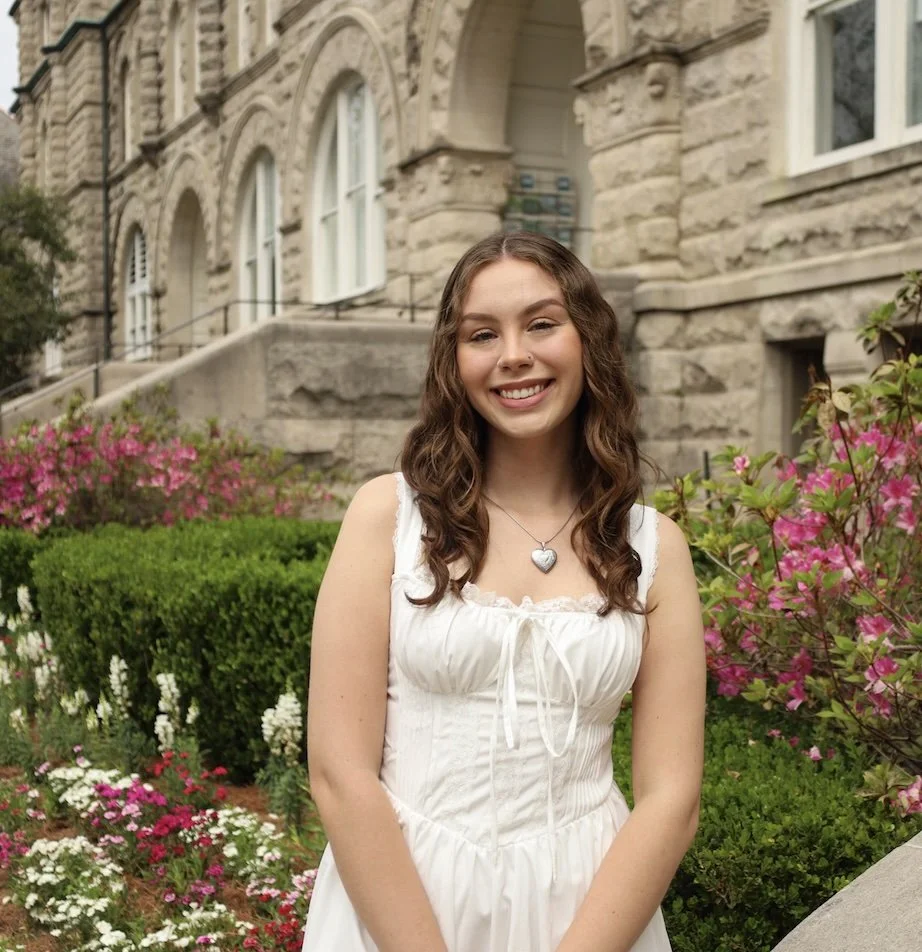
Alex
Alex is originally from southern Maryland, but recently graduated with a BS in Ecology and Evolutionary Biology from Tulane University in New Orleans, Louisiana, a place that heightened her love for nature more than she ever expected it to. With all the swamps, marshes, and wetlands that she got her education through in Louisiana, she became very interested in wetlands ecology and water quality issues surrounding these ecosystems made worse by certain human activity, especially in an area that experiences such extreme weather that often amplifies the problem. Her project with Dr. Garner and the study area of West Virginia have given her a unique opportunity to explore her interests in water quality and the effects of human activity on water sources in an area that is also heavily affected by extreme weather. Her project will look at the relationship between flooding and the functioning of onsite wastewater treatment systems, specifically analyzing the pathogens present in the water affected by these systems. She will quantify indicator bacteria and antibiotic resistant bacteria in areas in floodplains and compare with areas not in floodplains to predict potential risk to human health. Although she is not sure what her next steps will be immediately after this program, she hopes to eventually earn a graduate degree and possibly pursue a career in restoration ecology. In her free time, she loves to play piano, listen to music, kayak, bird watch, and explore around town.
-

Tecora
Tecora is from Burlington, NJ and recently graduated from Duquesne University with a Bachelor of Science in Biology with minors in Public Health and Psychology. At Duquesne, she worked in a molecular evolution laboratory studying a reproductive gene involved in the production of pregnancy hormones. This experience cemented her research interests in genomics and public health. Tecora is now working with Dr. Eugene Shakirov at Marshall University to analyze the antimicrobial activity of bioactive compounds secreted from model moss species. This could suggest new options for treating infections caused by antibiotic-resistant bacteria. She hopes to utilize the skills and experiences gained through this program to pursue graduate school or additional training and a career in public health. In her free time, Tecora enjoys reading, listening to music, exploring nature, and spending time with friends and family.
Mentees ‘24-’25
-
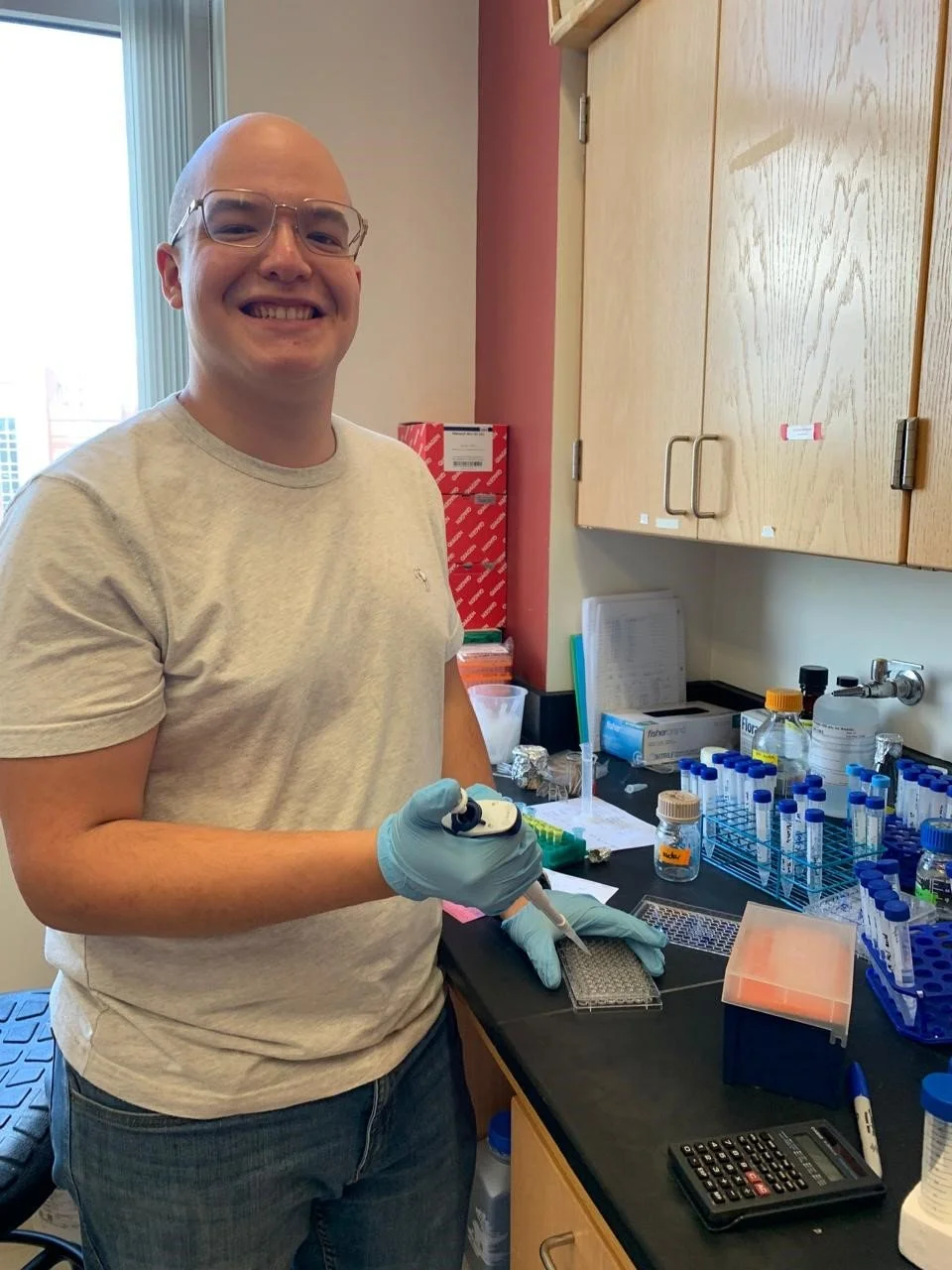
Santiago
Santiago calls Monterrey, Mexico home, and he completed his biology degree at the Autonomous University of Nuevo León in the same city in 2022. He has a broad interest in the biological sciences, and he is now focusing on yeast, in-lab evolutions, and heavy metal pollution. He is currently working on measuring the bioaccumulation properties of yeast to bind to lead molecules and hopes to use yeast cells to develop a probiotic that will serve as a preventative measure against lead poisoning in high-risk populations. Santiago intends to use the One Health program as an opportunity to get some valuable research and writing experience, and to learn as many tools as possible for use in a graduate degree and in future work in academia or natural resource management. In his free time, Santiago enjoys cooking, reading, playing video games, and generally being outdoors and in the water.
-

Noah
Noah is from Tecumseh, MI and has always enjoyed exploring the natural world. He completed his Bachelor’s Degree in Ecology, Evolution, and Biodiversity from the University of Michigan-Ann Arbor in 2024. His research interests are in plants, forest ecology, and ecosystem ecology. Noah works with Dr. Palmquist and is examining the ecosystem services provided by urban trees. His research project studies flood mitigation by looking at what physical traits of trees intercept water during major precipitation events. Ultimately, Noah hopes to earn a graduate degree and work in academia or natural resource management. In his free time, Noah enjoys running, kayaking, playing the violin, gardening, and exploring with maps.
-

Nazim
Nazim Mustafa received their Bachelor of Science in Biology with a minor in Computer Science from West Virginia University. Their interdisciplinary background allows them to integrate computational tools with biological research, optimizing the analysis of viral genetics and environmental data.
Nazim is a virologist focused on the study of influenza A virus (IAV), particularly in associating the hemagglutinin (HA) and neuraminidase (NA) gene segments to detect specific viral strains more effectively in environmental samples. By targeting these key viral components, Nazim aims to build comprehensive epidemiological profiles, enabling public health authorities to respond more proactively to flu epidemics and potential pandemics. Their work contributes to improved detection methods, helping predict and manage outbreaks with greater precision. They hope to join the forefront of developing innovative approaches to influenza surveillance, ensuring preparedness for future health challenges.
-

Delano
Delano is from Decatur, GA and completed their bachelor’s degree in Biology with a minor in Artificial Intelligence from Agnes Scott College in 2024. Their research interests are in microbiology, evolutionary biology, and genomics. Delano is currently investigating the effects of biofilm communities in wastewater on recovery of viral genetic material for disease surveillance, tracking the persistence of bovine RSV as a proxy for SARS-CoV-2, in a bioreactor maintained with wastewater from the city of Huntington. Eventually, Delano hopes to earn a doctorate and work in academia or education. In their free time, they enjoy art, listening to audio drama, and hiking.
-

Maria
Maria, a Charleston, WV native, has always had a passion for working in research laboratories. She earned her bachelor’s degree in biology, with a minor in chemistry, from West Virginia State University in December 2022. Her research interests focus on remediating water from emergent contaminants, and improved health quality. Currently, Maria is expanding her skills in instrumental analysis by learning about HPLC, LCMS, and other techniques. She aspires to either enroll in graduate school or work in a healthcare facility. In her free time, Maria enjoys traveling, walking along trails, camping, nature photography, and painting.
-
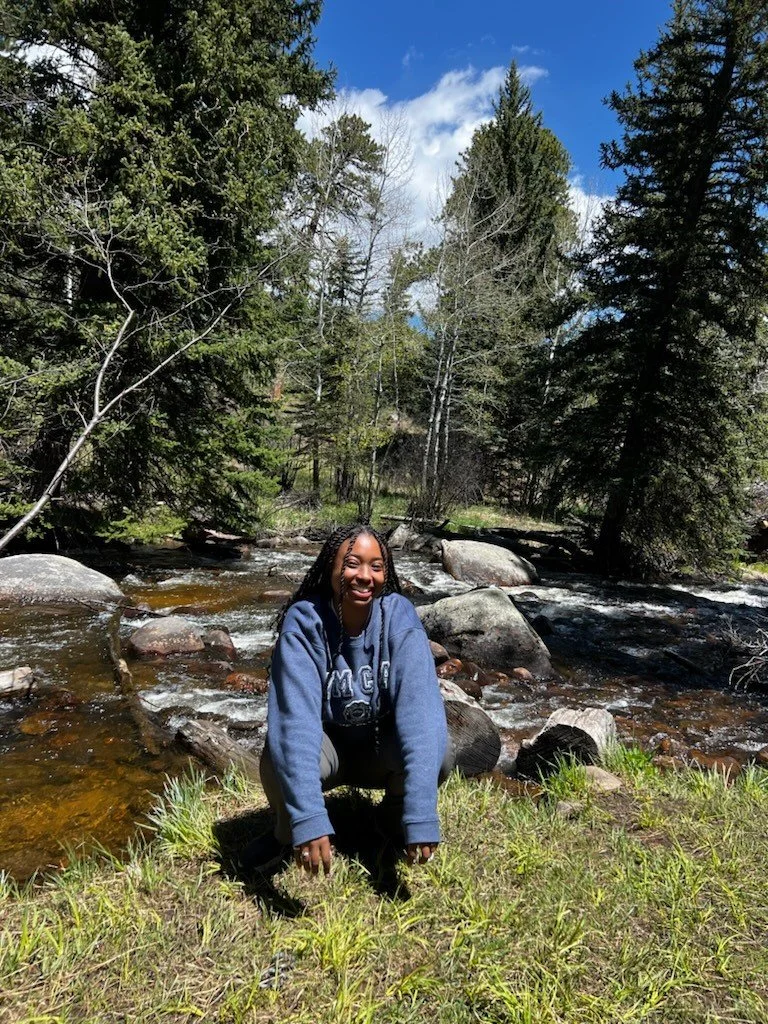
Kameryn
Kameryn Overton is a 2024 graduate of Tuskegee University with a BS in Environmental, Natural resources, and Plant Sciences and a minor in biology. Her research interests include public health, environmental health, and urban sustainability. For her project, she is working with Dr. Gregory Dahle to examine the connection between urban canopy cover, air pollutants (PM10, PM2.5, SO2, NO2), and chronic lung diseases like asthma and COPD. She plans to collect air pollutant data in 4 cities in West Virginia and conduct a seasonal comparison. After this program, Kameryn would like to pursue a professional certificate or a federal job.
-
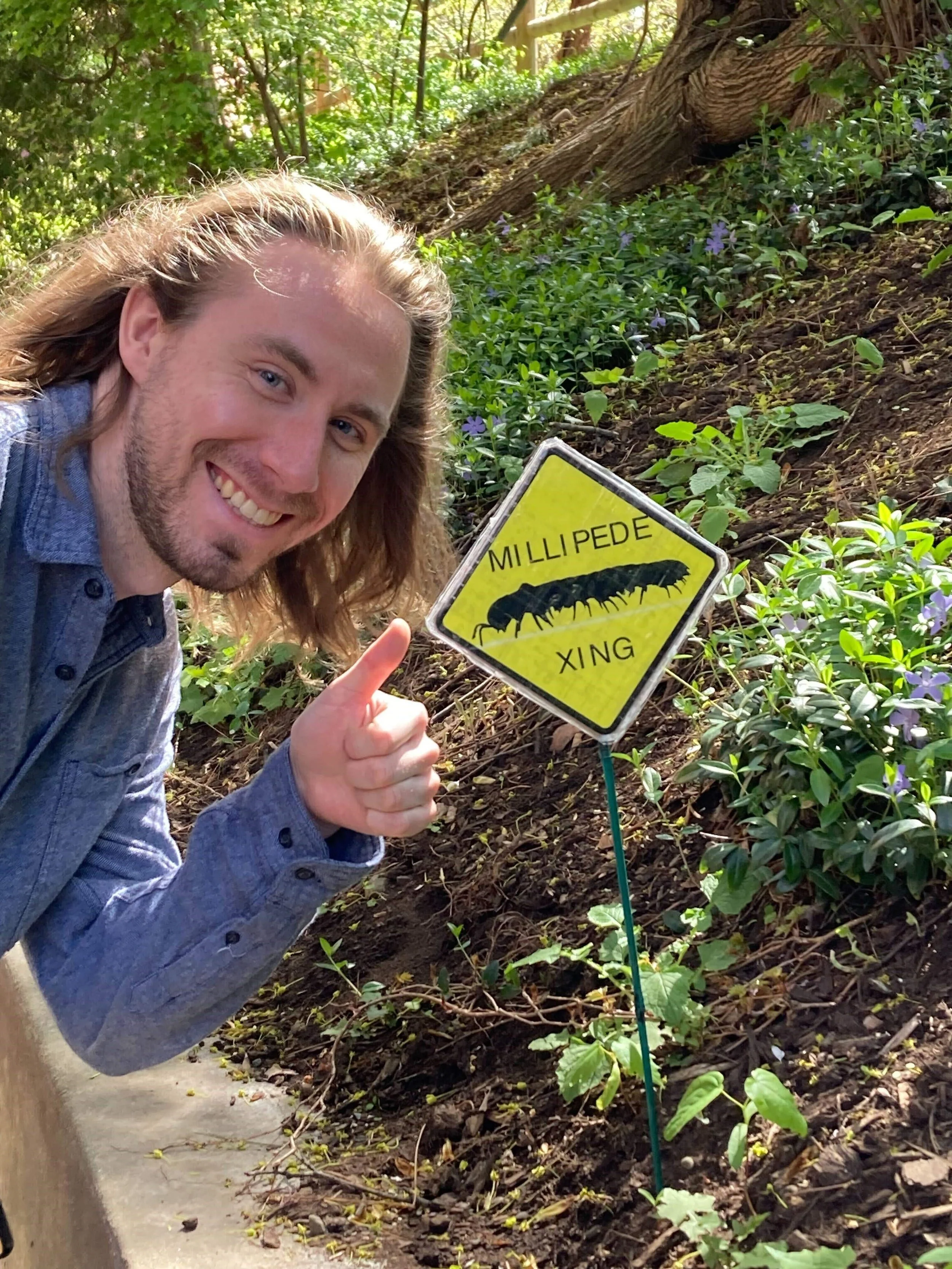
Greg
Gregory Biddle, a post-baccalaureate researcher working with Dr. Matt Kasson at West Virginia University, is investigating the thermotolerance and antifungal resistance of environmental fungi across the central Appalachians. The fungal kingdom has incredible diversity and although many species of fungi benefit humans or provide ecosystem services essential for life, a small but important subset of fungi can serve as pathogens, some of which pose serious risks to human health. Dr. Kasson and Greg will survey and sample across the region to identify possible environmental reservoirs for antifungal-resistant and thermotolerant fungi. In doing so, they hope to characterize species of particular concern to West Virginia residents and the healthcare systems that support them. After the One Health WV program, Greg is looking to pursue a PhD studying biology.
-
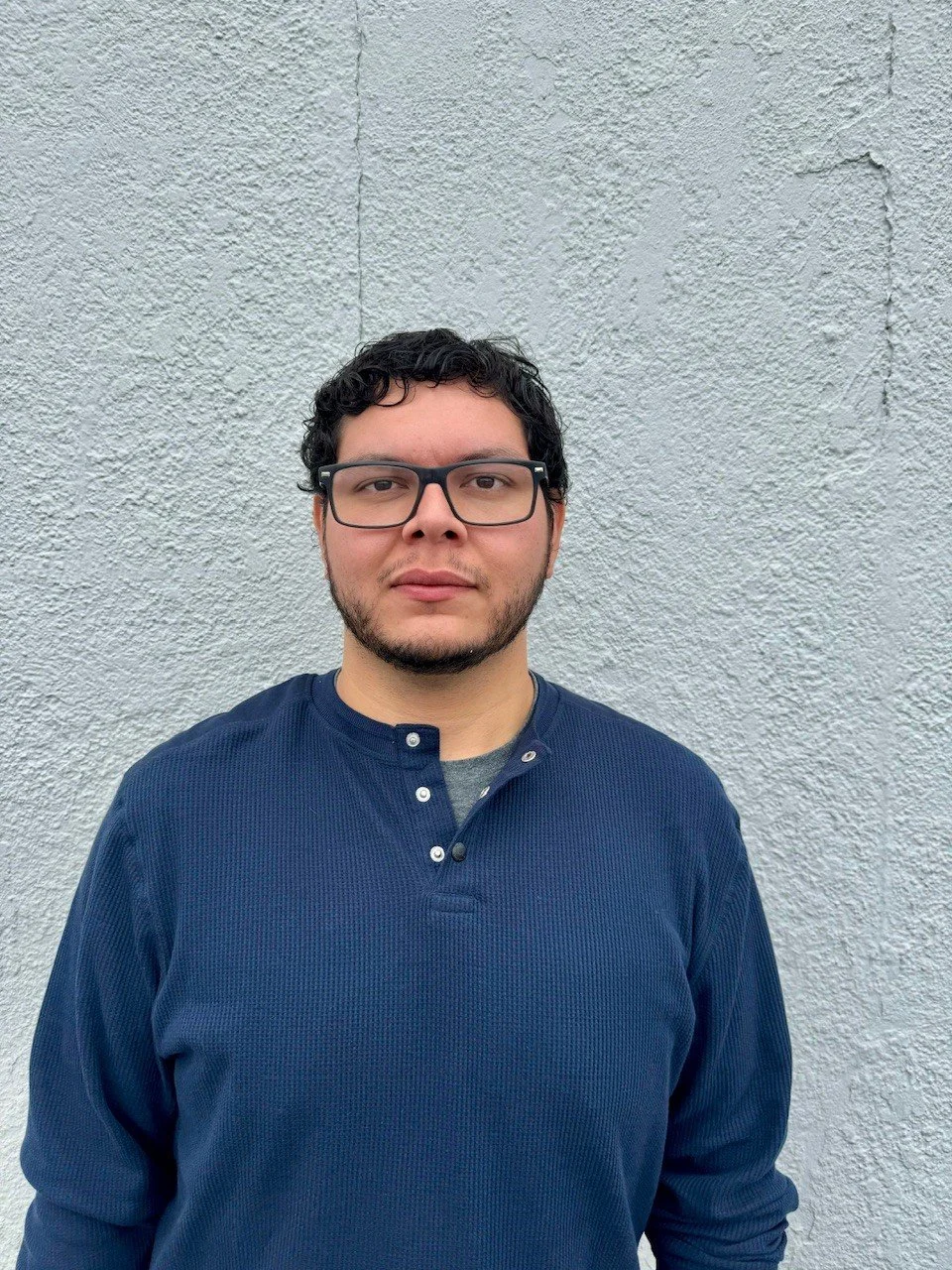
German
Born and raised in Houston, TX, German started his education at his local community college (HCC). After a motivating summer in a Research Experience for Undergraduates program, he transferred to Rensselaer Polytechnic Institute to pursue a bachelors degree in physics. German’s work centers on creek water quality in previously mined lands, specifically those affected by mountaintop removal valley fills (MTR-VF) created in the process of surface mining. Despite reclamation practices in place aimed at restoring prior mined site ecosystems, MTR-VF have been shown to still be a detriment to stream water quality. German is analyzing the effects of in-stream hydrologic features on levels of total dissolved solids. He is developing a model that can guide future practices and regulation toward mitigating the effects of MTR-VF to downstream ecosystems and communities. German is still deciding if he would like to pursue graduate school or become career oriented. German enjoys listening to music, photography, exploring his surroundings, and hanging out with good company.
